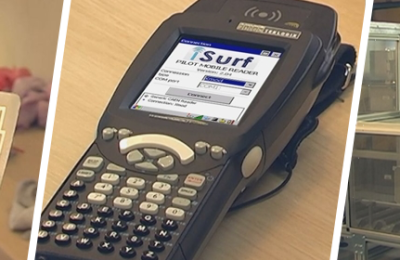The main aim of NIMBLE is to optimize and automate the communication and collaboration among supply chain partners. NIMBLE aims to bring any type of supply chain partner including manufacturers, suppliers, service (logistics / maintenance / etc.) providers and also the software providers as well on the same platform. Therefore, the platform will perform as a registry of such firms to which they can publish their specialized products or services and be discoverable based on those products and services. In this respect, NIMBLE will be a cloud platform of which instances could be customized for addressing sector-specific and regional requirements and business models. NIMBLE aims to create a network effect within the platform by acquiring as much players as possible from the supply chain of a single firm or a single sector. Therefore, the project especially targets small and medium sized enterprises (SMEs), who constitute a large portion of supply chain participants. SMEs usually cannot access easily to advanced ICT solutions (mostly because of financial limitations and complexity of advanced solutions), and NIMBLE aims overcome these reasons and incorporate SMEs into digital supply chains.
Capabilities
NIMBLE will reach its goals by offering the following services through the platform:
- Publishing services for online discovery of services or products supplied by different types of supply chain firms: NIMBLE goes beyond classic product catalogs by enabling discovery of non-traditional products as well as services specific to firms themselves. Examples include:
- Logistics service provider: Road transportation capabilities with flatbed trucks for carrying overweight cargos
- Manufacturer: CNC production up to 6 meters for metal products
- Maintenance services provider: After-sales maintenance for white goods
- Industry automation software provider: PLC automation and process visualization
- Product / service publishing will also benefit from IoT in order to make IoT-connected assets discoverable instantaneously
- Currently available packaging line with 10-color extrusion coating machine with up to 150 cm width
- 5 available container trucks with air conditioning
- Partner / product / service search service modalities for easy and quick discovery of suitable partners
- Services for supply chain modelling: Supply chains will be expressed as business processes. Libraries including ready to use business process templates with varying granularities will be provided on the platform. Considering the involvement of SMEs in digital supply chains, the methodology of these templates is one click to get it done and be sufficiently intuitive and easy to be utilized by SMEs.
- Business process template libraries that are enhanced by the IoT connectivity will enable application of innovative business models such as collaborative logistics or collaborative manufacturing
- Real-time optimization capabilities on the supply chain operations such as planning production logistics based on the real-time monitoring of production process at suppliers’ premises.
- Matchmaking services that enables partner search considering different supply chain segments like raw material producers, sub-manufacturers, logistics service providers, etc. or different supply chain needs such as speed, reliability, quality, etc.
- Benchmarking services that enables comparison of multiple alternatives (product / service provider) considering factors such as profitability, environmental impact, market-specific regulations, etc.
- Life-cycle data management including collecting data for the product itself and its sub-components from any phase of life-cycle design, transportation, production, end-of-life along with visualization and reporting of these data
- Analysis of life-cycle performance data considering partner / material / design alternatives
- Utilities including software development kits (SDKs), testing environment and cloud infrastructure for industrial software providers to develop and deploy their solutions
Use Cases
During the 3-year duration of the project, NIMBLE is going to have 4 use cases from 4 different industry sectors namely modular houses, white goods, textile and child furniture. Furthermore, NIMBLE has an ambitious dissemination and exploitation agenda, which aims to bring 1000-2000 early adopter into the platform during the life-time of the project. The following activities will be performed in the scope of the official use cases of NIMBLE:
- Dynamic supplier acquisition considering the requirements / regulations of a new market and its acquisition into existing supply chains
- Synchronization of inbound logistics and production plans at the main factory considering real-time status of production processes at suppliers’ side
- Defect analysis based on the data to be obtained from sensors during the transportation
- Analysis of product life-cycle data for quick identification of product defects reported by customers
Potential Benefits for Platform Users
Being a platform connecting diverse industry actors, NIMBLE aims to improve their processes and create new collaboration opportunities for them. In this respect, the impacts to be generated by NIMBLE for the targeted platform users include but not limited to:
- Increased business opportunities for supplier firms and service providers
- Rapid sourcing of suppliers and materials
- Reduced production costs driven by rapid partner selection
- Decreased time when entering new markets
- Improved data exchange with small service providers
- Increased automated data exchange among supply network partners
- Reduced cost of outsourced production
- Reduced in-transit problems
- Reduced customer order lead/turnaround time
- Clear and easy evidence of production and material traceability
- Improved aftermarket monitoring of real-world product performance and durability
- Better product design and quality improvements based on field service data
- Speed up repair and maintenance processes
- Efficiency assessment for each of separate production facilities
- Faster correction of design flaws
- Increased number of recycled products
- Increased visibility for software solutions by industry companies
SRDC will take part in the following activities during the project:
- Construction of NIMBLE common data model
- Design of open APIs, which will ensure the interoperability between NIMBLE platform instances
- Platform UX design with the motto: “one click to get it done”
- Setting up the cloud-based core platform infrastructure
- Development of product / service publishing mechanisms and catalog registry
- Development of collaborative business process modelling environment containing ready-to-use modular business process templates
- Development of software developer utilities on the NIMBLE cloud platform
- Development of security measures like authentication, authorization and auditing
- Development of partner reputation management
| 1. | SRFG | Austria |
| 2. | IBM | Israel |
| 3. | SRDC | Turkey |
| 4. | Universitaet Bremen | Germany |
| 5. | Lulea Tekniska Universitet | Sweden |
| 6. | INNOVA SRL | Italy |
| 7. | Whirlpool Europe SRL | Italy |
| 8. | Lindbacks Bygg AB | Sweden |
| 9. | Fratelli Piacenza S.P.A. | Italy |
| 10. | Micuna s.l. | Spain |
| 11. | AIDIMA | Spain |
| 12. | HOLONIX SRL | Italy |
| 13. | BALance Technology Consulting GMBH | Germany |
| 14. | DOMINA SRL | Italy |
| 15. | FEVAMA | Spain |
| 16. | Blatraden AB | Sweden |
| 17. | ENEA | Italy |










Pingback: We did it in Horizon 2020 too! | SRDC